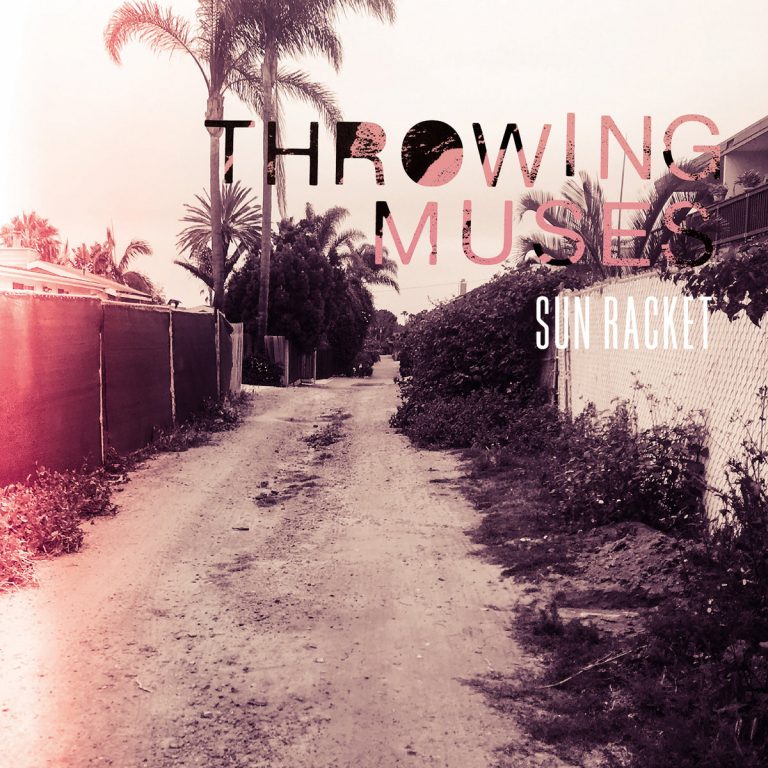Singer-songwriter-guitarist Kristin Hersh has said repeatedly over the course of her several decades in music that songs essentially arrive to her, entering her head like a spectral beckoning, in dire need of being extracted from her head and put into motion in the real world. She has described songs with such a reverence, almost acting as though she is merely subservient to their whims as she hurries to strum the guitar and get those words and notes out.
It’s perhaps no surprise then that, across several well-received solo albums and many with her rock band Throwing Muses, Hersh’s songs have often come across as hallucinatory, segmented, or knotty. Her songs, ever since Throwing Muses’ debut in 1986 (which was the first American band put out by 4AD), have been driven by this ineffable id, this drive that pushes the lyrics into serpentine structures, surprising in their unwillingness to stay anywhere too long or to be predictable. Some of those hazy lines have been ironed out here and there, especially on her solo material, and as her career hit its 2000s-era, the anything-goes structural and aural style gave way to a more organized but no less intense and intoxicating chaos, her words just as poetic and evocative as ever.
Somewhere along the line, though, Hersh and company clearly got a bit restless, and wanted to mess things up again. Their 2013 album Purgatory/Paradise was their first in 10 years, and also by far their longest: spreading across 67 minutes and 32 tracks, the album contained a handful of what you might call typical songs, alongside a slew of tiny pieces of songs, fragments and reprises and small moments. It gave the album a sort of out-of-body effect, transporting the listener from phase to phase, from despondent tone poem to blistering rock song, all in a whiplash of top-notch musicianship and playing.
On their first album since then and 10th overall, Sun Racket, the Muses have dialled things way back. Even though they have gone from their longest album to their shortest, the band has lost none of their edge. This is a gnarly, thick, humid rock album, full of chugging guitars, thundering percussion, deep steady bass, and above all, Hersh’s incantatory, abstract lyricism and trademark husky voice, wailing and pleading and soothing in equal measure. There’s always been a thrashed-throat beauty to the way Hersh sings her words – you hear it in every vowel she relishes in elongating – and it colors Sun Racket from edge to edge. No one quite sings or makes songs like Hersh does.
Opener “Dark Blue” starts innocuously enough with just Hersh’s electric guitar strumming a simple chord progression, but then, after what sounds like a skip in the record, it explodes into a full bed of instrumentation, the drums crashing in and Hersh’s guitar growling. “If I were a better dreamer / You’d be a dream come true,” goes Hersh’s scathing lyric. It’s one of the most lucid lines on the record, and sticks out powerfully for it. Her lyricism on this record is some of her most illusory and stream-of-consciousness, delivering lines like “Every car crash on St. Andrew / Every killer bee in the kids’ room / Every coyote in the freezer / Gone and gone,” and “Helicoptering rabbits / The street cold as its mist / Omnipotence of boy,” with such grace and fire that you believe whatever it is she’s trying to tell you.
The album has some nice, exciting touches throughout its 10 tracks. “Bywater” has a deceptively sunny melody, replete with insistent “la la la”s that come and go. “Bo Diddley Bridge” is yet another example in Hersh’s’ canon that shows her strength for building a song up and up and up – only to let it succumb to a beautiful and surprising bridge to take the song out, capping a barn burner with a simmering epilogue. One of the slowest songs here, “Upstairs Dan”, chugs like a death metal song in soft focus, while “St. Charles” has a super muffled beat, as if the drum is underneath a thick down pillow. It’s the small moments like this, the ones you pick up on more on repeat listens, that keep the album fresh.
Sun Racket does suffer a bit from a general sameness across the tracks, but those flourishes enrich it from beginning to end, turning even a song that may feel just a hair inconsequential into something more memorable or moving. The whole thing ends with one of its gentlest cuts, “Sue’s”, which floats by on a classic-sounding waltz, and the album’s first and last occurrence of what could possibly be organ (or just a heavily treated guitar). Either way, it sounds lovely, almost like a slow dance at a homecoming event, but then you notice Hersh is smokily singing about how the devil “doesn’t love who he fucks” and about “flies on walls / in a heaven hell made.” It’s a stunning and properly weird ending to a weird album, and though it may be one of their most succinct albums, Sun Racket still showcases what the Muses are up to so long into their career, and why they should keep doing exactly what they’re doing.

